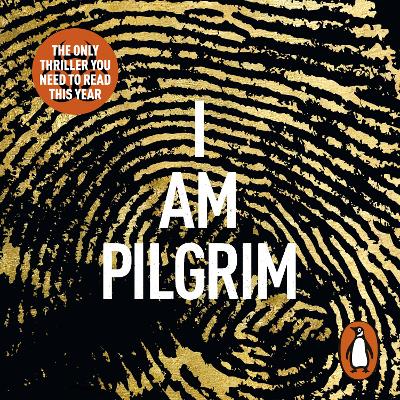I Am Pilgrim

As seen:
Reviews
St Just Monday Morning Reading Group 22nd August 2022.
I am Pilgrim. Terry Hayes.
The group’s discussion of this book was long, highly interesting, and ranged over a number of issues. In general readers thought the narrative was cleverly plotted, convincing, realistic, and very absorbing. A majority said they liked the book; one or two readers said they didn’t, but just the same they were drawn into it whilst reading. It was also agreed that the story looked as if it were intended as a film-script, and we suspected that a film of it is in fact in production. The plot, we thought, must have entailed a lot of research into the various complexities, not least the smallpox element, and the ingenuity of involving the reader in finding out what is happening, or ‘making the reader into a spy’, was pointed out and admired. We did notice some minor holes in the plot, but decided that in a film, when viewed at speed, these would be unnoticeable.
We talked about the violence in this book, some of which is highly gruesome, and whether this was acceptable or not – the consensus was that the violence was a necessary, though challenging, aspect of the book: it raised the stakes of the events described, and explained to the reader why the characters are invested in them so much; it added depth to the story; and it was connected with real events of war and terrorism from which we can hardly escape. We compared the violence in this book to that in Sebastian Barry’s On this day, which we read a while ago.
We considered the idea of the distribution of the smallpox variant via a supposed vaccine for the disease. The novel was written prior to the present pandemic, and so a number of questions were raised about the workability of this scheme, principally, whether or not it would be containable with the US. Current events of course suggest that it would not. We talked about how smallpox spreads, whether the older generation in the UK have immunity to it or not, and what might have happened if the virus had been released in multiple locations. We also touched upon the immorality of medical practitioners, or supposed ones, spreading disease instead of curing it, and asked ourselves whether such a thing is worse than, for instance, the attack on the World Trade Center. We also compared the smallpox release scenario with the matter of anthrax release during World War Two.
Another moral issue that arose was the question of whether suicide (as depicted in the book) is sanctioned by Islam, or not, and under what circumstances.
Following this was a discussion about radicalisation of young people to extreme forms of religion (Islam and others), how this comes about, and how this may lead to the committing of atrocities. In this particular book, we thought, religion has been twisted by human beings to serve evil purposes – the protagonists do in fact make conscious and deliberate choices about their actions, and are not merely victims of their upbringing or of indoctrination. Their choices might be flavoured, or influenced, by their backgrounds, but they are still choices just the same. In a similar vein: was the book Islamophobic, or not? In the end we decided that though anti-Muslim vocabulary is certainly used, in essence the author is only criticising extreme Islam, and not the religion itself or the majority of its genuine followers.
The discussion could have continued longer, but was ended by our time limit, and closed with a (paraphrased) quotation from Marx: ‘History is made by men under circumstances not of their own choosing’.






